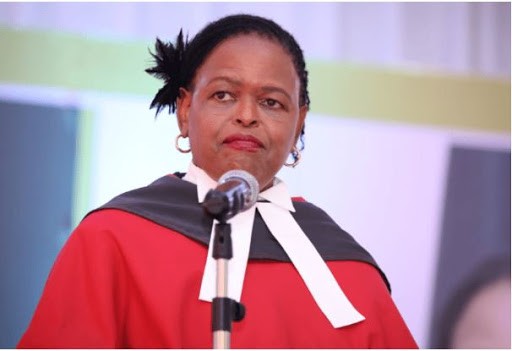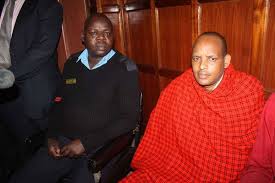Chief Justice Martha Koome has urged the High Court to dismiss a petition by lawyer Omwanza Ombati opposing the gagging of advocates from commenting on presidential election petitions.
In her submissions, the CJ said that the Supreme Court, being the apex court and the court with original jurisdiction to hear and determine petitions on presidential elections petitions, is allowed under Article 163(8) of the Constitution to make rules for the exercise of its jurisdiction.
On 12th April 2022, CJ Koome issued a gazette notice saying, “parties to election petitions, their advocates and their agents are prohibited from expressing their views/opinions on presidential election petitions or predicting the outcome of the proceedings in any manner that would prejudice or impede court proceedings, until judgement is delivered; with penal consequences, by way of contempt proceedings, for violation/non-compliance with the amended rules”.
Omwanza filed the case seeking to overturn the said directive on grounds that it unjustifiably violates or threatens to violate human rights and fundamental freedoms.
In her submissions, CJ said that the independence of the judiciary is a paramount aspect of our country’s democracy.
“The impugned rules are clear, reasonable, rational, proportionate and made to promote the spirit and letter of the Constitution as well as its purpose and principles and urged the court to find so,” the CJ added.
Judicial independence
The court heard that it is very important that judges be allowed to operate independently and make decisions that are free from external influence.
She noted “Disparaging comments are an attack on Judicial impartiality and independence which are integral to the rule of law enshrined in Article 10 of the Constitution.”
Koome told the court that advocates have a duty to use social media in a manner that brings respect to the profession and advocates must exercise care and refrain from indiscreet conversations on social media which may be construed as an attack on the reputation of judges and lowering of the legal profession as a whole.
READ:cj-koome-opposes-case-challenging-gagging-of-lawyers-in-presidential-election-petitions
She said that this is in line Code 10 of the Law Society Code of Standards of professional practice and Ethical Conduct, 2016, which states “Social media can be used in a way which potentially can undermine the standing of the legal profession. Therefore, in using social media Advocates should be mindful of the obligation to uphold the dignity and standing of the profession and should apply the same high standards of conduct to online activity as they do in their day-to-day professional life”.
“It is therefore unethical for advocates who have appeared before the Supreme Court and indeed any other court, to engage in public discourse or social media commentary in a matter pending judgement with the objective of disparaging the court,” she added.
Law Society of Kenya has told the court they will neither support nor oppose the petition but urged the court to find that Rule 18(4) is unconstitutional for want of public participation.










